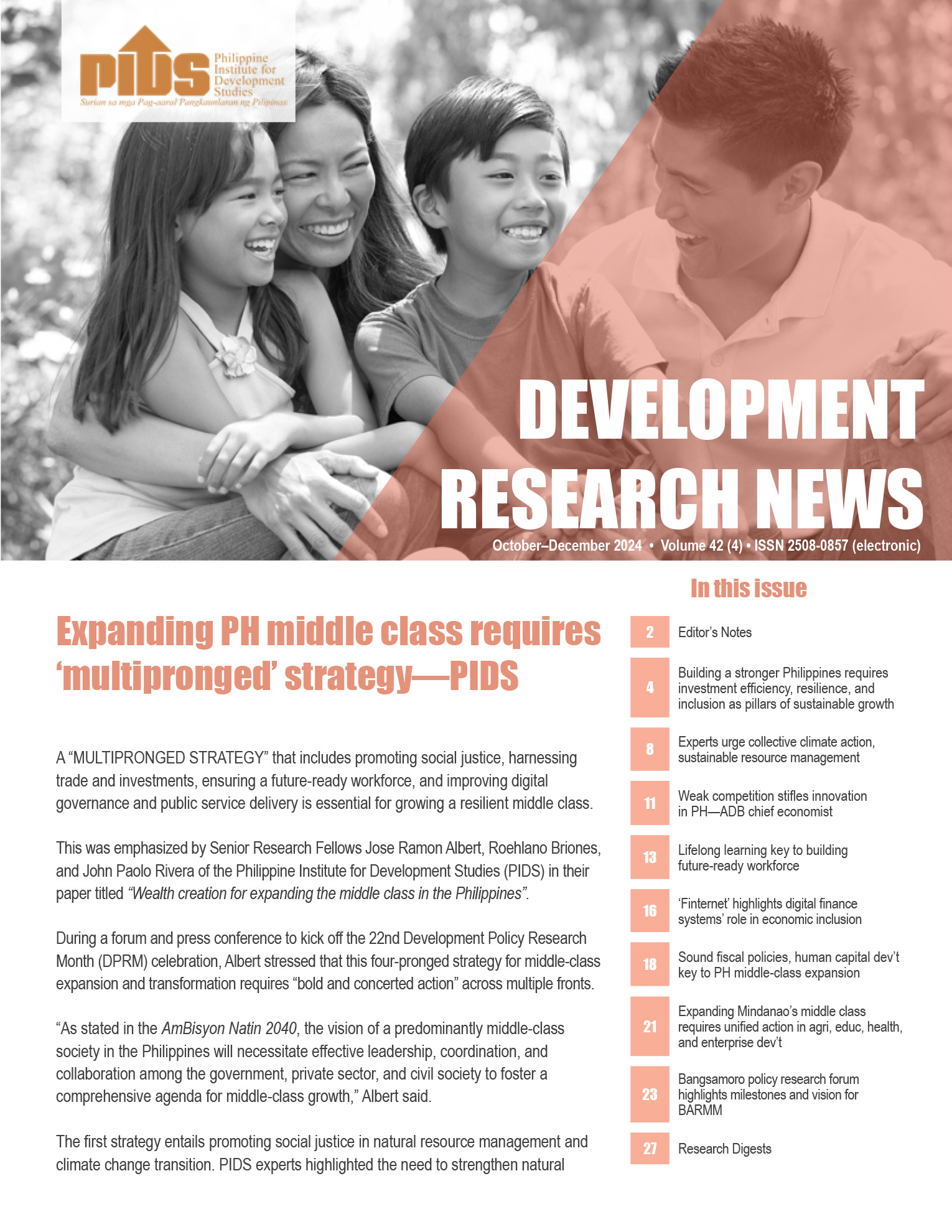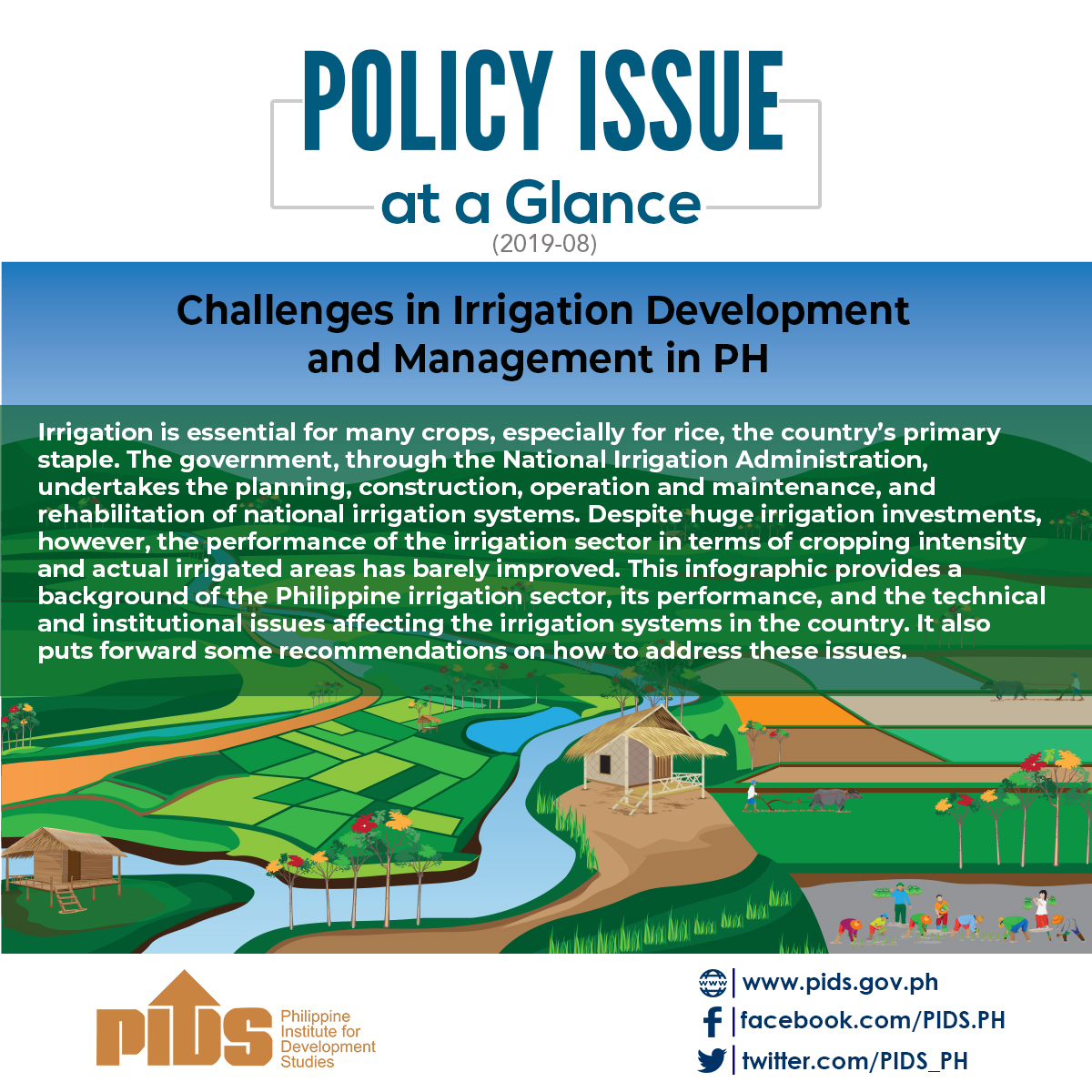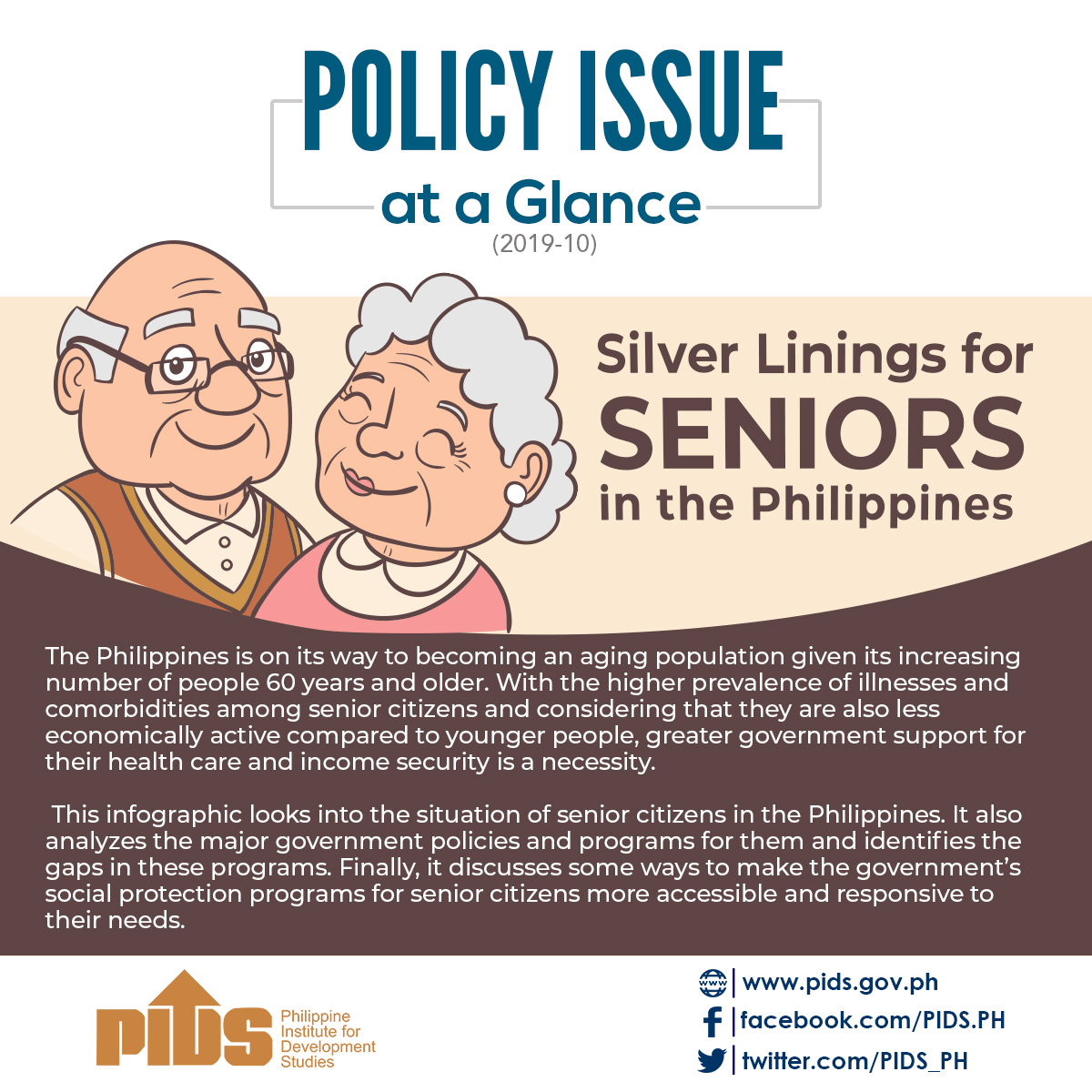
NEW PUBLICATIONS:
DRN 2015 Vol. XXXIII No. 4: PIDS, NEDA, 3ie bolster campaign to create a culture
of evaluation
by PIDS Research Information Staff
As the year 2015 ends, the Philippine Institute for Development Studies (PIDS) looks back on one of its most challenging projects to date--impact evaluation. The Institute considers its involvement in impact evaluation work as a way to bring policy research in the Philippines one step higher. This issue of the Development Research News, thus, highlights the Policy Forum on Impact Evaluation that brought together senior government officials to promote a culture of evaluation among policymakers--a cause that PIDS believes in. Moreover, this issue also digs deep in exposing core irrigation problems and in scrutinizing the effectiveness of the Community Mortgage Program. PIDS research findings on bottom-up budgeting, postharvest facilities, and logistics industry in the Greater Manila Area, which were presented to the Congress through policy dialogues, complete this quarter's issue. Click here for the full article
POLICY NOTES
PN 2016-02: PhilHealth Coverage in the Informal Sector: Identifying Determinants of Enrollment
by Denise Valerie Silfverberg
One of the schemes of the Philippine Health Insurance Corporation (PhilHealth) is the Individually Paying Program (IPP), the voluntary component of the country's social health insurance. Those enrolled in the IPP scheme are individuals who opt to pay for their own membership. They generally include the self-employed, self-earning, and those in occupations without a formal employer-employee relationship, such as the informal sector. This Policy Note aims to identify the determinants of enrollment into the IPP. Identifying predisposing factors will allow for better and more efficient targeting of the sectors of the population that are otherwise difficult to capture. Click here for the full article
PN 2016-01: PhilHealth's Employed Program: Strengthening a Mandatory Scheme
by Denise Valerie Silfverberg
The Employed Program is a component of the National Health Insurance Program that caters to the formal sector. It covers people in the government and private sectors who are under a formal employer-employee relationship. It is compulsory to all workers in the formal sector. Despite its mandatory nature, full coverage has yet to be achieved in this sector. This Policy Note discusses the reasons and provides some recommendations on how to improve the coverage level. Click here for the full article












